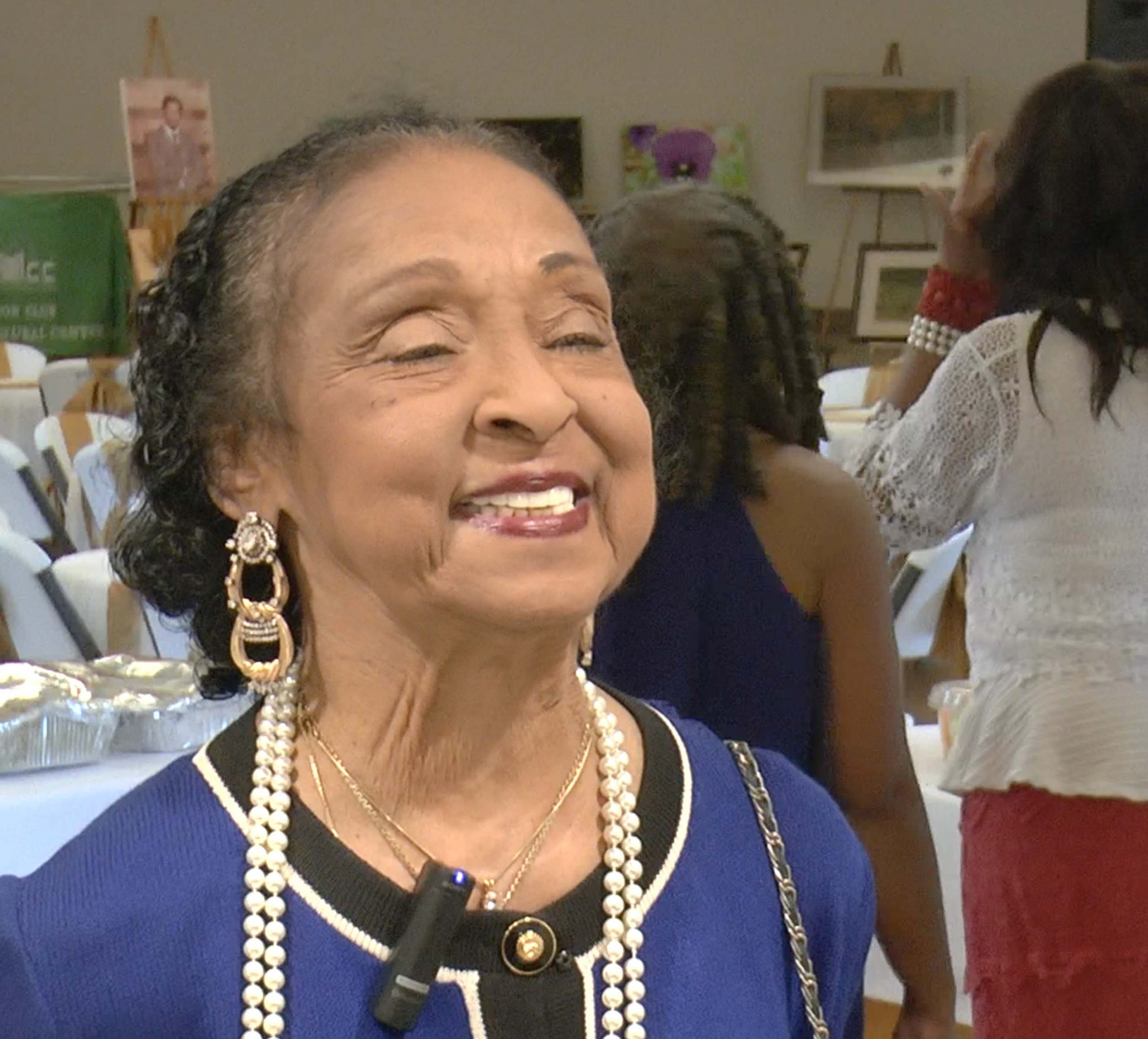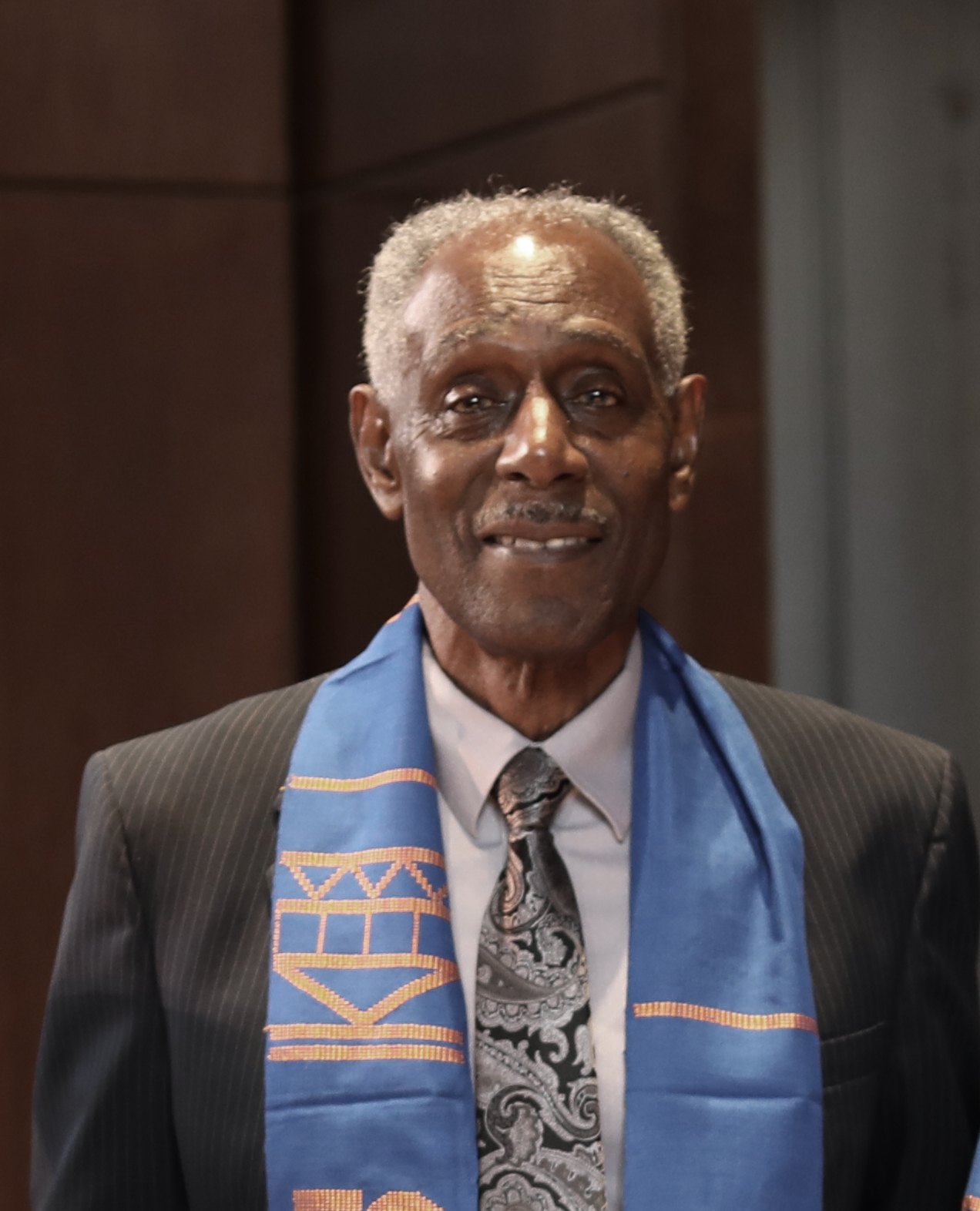9 Summary and Conclusions by Jacob U’Mofe Gordon and Paul Ortiz
The 50th Anniversary commemoration of the African American Studies Program at the University of Florida was a momentous and cultural milestone in the history of our institution. The first part of the commemoration featured a day-long public program titled: “Looking Back and Moving Forward: African American Studies at the University of Florida Turns 50, The Ronald C. Foreman Symposium at the University of Florida.” The following day, students, faculty, and members of the broader community gathered to honor the program’s founders as well as to dedicate a historical marker in honor of the 50th Anniversary. These events brought an impressive number of African and African Studies stakeholders to the campus. They reflected on the past; celebrated the present, and articulated strategic plans for the future of African American Studies at the University of Florida. The interactions among the participants and observers in attendance at the two days of events on Thursday, February 20, and Friday, February 21, 2020, were collaborative, insightful, inspiring, and optimistic.
The events were also marked by academic panels and musical entertainments provided by Pazeni Saudi, the University of Florida African Choir, Ms. Lesa M. Phillips, University of Florida Guest Services Specialist, and Choral Music presented by the 1000 Voices of Florida, led by Ms. Joy Banks, President, and her daughter, Ms. Ra’Chelle Banks of Gainesville, Florida.
The historical marker was placed and unveiled at the heart of the campus, Turlington Plaza, outside the newly renovated home of the African American Studies Program. At the unveiling of the historical marker, the Dean of the College of Liberal Arts and Sciences, Dr. David E. Richardson, reaffirmed the commitment of the College to provide resources, including the hiring of four tenure-track faculty, for the advancement of the Program toward departmental status. He noted, “I urge all of you to support our shared aspirations for the future. I will need you also contribute to the University’s aspiration for African American Studies to become one of the very best departments in the country. I predict that the department will become nationally recognized for its already robust undergraduate programs, expansive scholarly excellence, and its people and their contributions to the world of knowledge and indeed a liberal education.” The Dean’s final remarks expressed great optimism when he added, “African American Studies will take its rightful place in the vision of the University and its students.” Dr. W. Kent Fuchs, President of the University of Florida observed:
The marker we are about to unveil…is more than simply metal and paint. It represents the willpower, vision, and commitment of the many women and men who built the African American Studies Program, and who continue to make it vital to UF. With today’s unveiling, we celebrate the Program’s founders for their commitment to equity and inclusion—in an era when it was not always welcomed. We celebrate the individuals who overcame many challenges to sustain and grow this Program over the past five decades. And we celebrate the academic leaders, faculty, staff, and students who are raising the visibility of the African American experience … and indeed are making the African American experience more and more a part of the University of Florida experience. I am very pleased, today, that during Black History Month, we will officially, through our newest historical marker, recognize the African American Studies Program as one of the defining elements of the University of Florida … and of being Florida Gators yesterday, today, and tomorrow.
The members of the Committee on the Historical Marker were introduced by Dr. James Essegbey, Interim Director of African American Studies Program at the University of Florida, who recognized Dr. Mary A. Watt, Associate Dean, College of Liberal Arts and Sciences; Mr. Joseph M. Kays, Director of Research Communication; Dr. Nina C. Stoyan-Rosenzweig, Assistant Vice President for Communications; Mrs. Florida A. Bridgewater-Alford, Associate Director of Learning, Development & Integration; Dr. Carl Van Ness, Curator of Manuscripts & Archives Department, UF Library, Special & Area Studies Collections; and Dr. Sharon Wright Austin, former Director of the African American Studies Program.
In commemorating the 50th Anniversary, the Honorable Lauren Poe, Mayor of the City of Gainesville, declared February 21, 2020 as an African American Studies Day. The Mayor urged all citizens of the City of Gainesville to join in the celebration of this historic event. The Honorable Commissioner David Arreola of the 3rd District in the City of Gainesville read and presented the Proclamation.
City of Gainesville, Florida
Office of Mayor Lauren Poe
PROCLAMATION
WHEREAS, the African American Studies Program was established as an academic unit in the College of Liberal Arts & Sciences at the University of Florida in 1969; and
WHEREAS, the Black Student Union was central to the establishment of the African American Studies Program at the University of Florida; and
WHEREAS, the African American Studies Program was established in the best interest of the University of Florida, the City of Gainesville, and the State of Florida; and
WHEREAS, the African American Studies Program developed the Bachelor of Arts degree in African American Studies in 2013; and
WHEREAS, thousands of students successfully completed courses in African American Studies during the past 50 years at the University of Florida; and
WHEREAS, the African American Studies faculty and students have made significant contributions to knowledge and the advancement of African American Studies in the American Academy and the global community; and
WHEREAS, the African American Studies Program at the University of Florida celebrates its 50th Anniversary in 2019.
NOW, THEREFORE, I, Lauren Poe, by the authority vested in me as Mayor of the City of Gainesville, do hereby proclaim February 21, 2020 as
AFRICAN AMERICAN STUDIES DAY
in the City of Gainesville and invite all our citizens to join me in participating in all activities related to African American Studies Day.
IN WITNESS WHEREOF, I have hereunto set my hand and caused to be affixed the official seal of the City of Gainesville, Florida, this 21st day of February, A.D., 2020.
In addition to the aforementioned activities, the 50th Anniversary Committee recognized six pioneers and stakeholders in struggle for the development of African American Studies Program at the University of Florida. Students, past and present, prominent members of the Black Alumni Association and the Alachua Community Leaders were in attendance for the ceremony to recognize the Honorees: Dr. Ronald C. Foreman, the first Director of the African American Studies Program; Mrs. Lakay Banks, Dr. Roy I. Mitchell (UF’s first Black Administrator), Dr. Harry B. Shaw, Judge Stephan P. Mickle, Judge Emerson R. Thompson (who helped establish AASP as an undergraduate), and Dr. David L. Horne. The celebration took place on Friday, February 21, 2020 in the Florida Auditorium at the University of Florida. The following are photos of some of the Honorees (Figures 9.1 to 9.3).


Moving Forward
This commemorative volume of the celebration of 50 years of African American Studies at the University of Florida has attempted to chronicle Black struggles for equal access to higher education and efforts to roll back systemic racism at an institution located in the former Confederate South. While we have shared many stories about the origins and growth of the African American Studies Program at UF, there are many more stories that need to be gathered, preserved, and promoted—and we hope that this volume will encourage students and scholars to continue to write senior theses, dissertations, and books on African American Studies.
The book has also been written in the spirit of optimism, with the belief that “there’s a light at the end of the tunnel.” It does not, however, provide answers to many of the questions frequently asked by students of African American Studies. These research questions include the following: Why did African American Studies Program fail to achieve a departmental status in 50 years? What factors were responsible for this failure? Was institutional racism a factor? Did the leadership of the Program fail to understand the significance of a departmental status in a major research university such as the University of Florida? Where did the fault lie? The Program leadership or the University leadership? Also, what role did national and international events play in the development of African American Studies at UF? These include the Third World Movement, the Anti-Apartheid Movement, the Vietnam War, and other crisis moments in world history.
Our optimism is greatly buttressed by the spirit and study habits of recent cohorts of African American Studies students at UF, including the graduating class of 2021. The newest generation of African American Studies students are carrying on the activist and intellectual traditions of their predecessors whose dogged pursuit of justice established the program in the first place. There are many examples to draw from. In the summer of 2020, scores of African American Studies majors participated in the city-wide petition campaign that resulted in the renaming of a local elementary school in honor of Carolyn Beatrice Parker, an African American female scientist who originally hailed from Gainesville. Prior to this change, the elementary school was named in honor of J.J. Finley, a Confederate general who fought to preserve the institution of slavery in the South during the Civil War. Additionally, two summers prior to the renaming, African American Studies students joined in an alliance with Hispanic and Latinx students to demand robust new buildings to house the Institute of Black Culture as well as the Institute for Hispanic-Latino Cultures (La Casita). This multiracial alliance was mobilized again in the wake of the police killing of George Floyd on May 25, 2020, in Minneapolis. African American students led a broad coalition of Latinx, Asian, Jewish, and other groups in a renewed Black Lives Matter democracy movement which rapidly became a global phenomenon for equal justice.
As we move forward and notwithstanding any potential obstacles, the prospects for an improved African American Studies academic enterprise at the University of Florida are more promising than ever. To begin with: a new Director, Dr. David A. Canton has been appointed, following a successful national search; the College has provided a budget for hiring four tenure-track faculty members, the new Director has been charged with the responsibility of working towards departmental status. In response to this charge, he has articulated his vision, not only for departmental status but to develop the M.A. and Ph.D. degree programs in African American Studies at the University of Florida. It is expected that in so doing the University of Florida will attain an equal footing with its peer institutions. As the famous American singer-songwriter Sam Cooke predicted in one of his seminal songs, “A Change is Gonna Come.” The real change at the University of Florida has been a long time coming, but it is on its way!
Chapter 9 Study Questions
- In light of this book how would you characterize the Black experience at the University of Florida and in the City of Gainesville, Florida? (250-500 words)
- What do you find in common amount the Honorees at the 50th Anniversary of the African American Studies at the University of Florida? (250-500 words)
- What is the significance of African American Studies Historical Marker on the campus of the University of Florida? (250-500 words)

